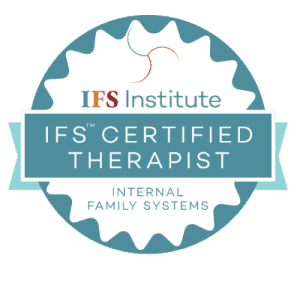I don’t know who I am
IFS therapy helps resolve such identity confusions, identity crises, and existential distress.

Dr. Millia Begum, a UK-trained Consultant Psychiatrist and Certified IFS Therapist with 25+ years’ trauma expertise, offers Internal Family Systems (IFS) therapy in Dubai. IFS is a gentle, non-pathologizing approach that helps people understand their inner “parts,” reduce shame, and build Self-leadership. Sessions are paced safely without forcing re-experiencing of trauma, making it highly effective for complex trauma, PTSD, dissociation, depression, anxiety, grief, shame, relationship stress, ADHD, and neurodivergence. Therapy is available both in-person at the First Psychiatry Clinic (Al Wasl Road, Dubai) and online, with booking via phone or WhatsApp at +971 55 355 7855.
Dr Millia is absolutely wonderful, she takes her time and is highly experienced in both psychiatry and therapeutic modalities which contributes to her warm approach. I am grateful to have found her and feel in great care with her.
She is the first therapist who is able to help me with my PTSD symptoms in a gentle and professional way. I’m definitely highly recommending her.
Dr Millia is a good listener, gentle in her approach, and asks the right question that allows me to discover and be aware of myself, my thoughts, and my body language.
I want to express my heartfelt appreciation for the care and support you have provided, your commitment to your patients is truly admirable,
Such a kind and soft spoken doctor. Makes you feel loved, welcomed, and heard. She’s very knowledgeable and helpful in her field
I had a great experience meeting with Dr. Millia, she was very attentive to me, aside from that, I felt at ease and comfortable with her. She’s amazing.
Totally made me feel at ease. With such a warm disposition and professional manner, Dr Millia helped with a plan of care which was empathetic, practical and made me feel understood.
Millia is exceptionally kind, caring and knowledgeable. She is so human and understanding, and can use her expertise in medicine and therapy to provide the most appropriate help. I am very grateful.
I see Dr Millia & I have no words other than she is one of a kind in this world her skills have no words & you will not find better in uae, I promise you
IFS therapy views the mind as a system of “parts” with protective roles and wounded experiences, led by an inner core called the Self. We build compassionate relationships with protectors (Managers & Firefighters) and, with their permission, help exiled parts heal. This gentle, evidence-supported approach is effective for trauma, PTSD/Complex PTSD, dissociation, grief, depression, anxiety, and ADHD-related challenges.
To understand the framework of IFS therapy, we got to view the natural architecture of the mind as various parts. This is explained below.
IFS helps you make sense of your inner world by recognizing three main types of parts:

Manager Parts are our pain prevention and pain inhibition parts of the system. These protector parts have diverse roles to circumvent our pain and internal sense of worthlessness.
The goal of some of the Managers are to ensure the system is in control and safe, ensuring predictability, order, and familiarity. These are influenced by past family and societal expectations and social norms. Anxiety, depression, and pessimism are a few of the
Manager parts may adopt roles as shown in the image—
“If I just stay in control, nothing can hurt me.” — Manager part

Firefighter parts are the pain relief and the pain-distractors of the system. These parts have immediacy by leaping into action when pain or hurt feels overwhelming and unmanageable. They use strategies to soothe, distract, or indulge. Rage, self-harm, and violence are also examples of firefighter parts.
Common firefighter behaviors are shown in the image-
“This is too much — I have to escape it all or end it all.” — Firefighter part

Exiled parts represent the wounded inner child—often carrying feelings of being a burden to others, unworthy, being bad or wrong somehow, unwelcomed, unwanted, or simply in pain of isolation. These parts may hold intense sadness, fear, shame, or a sense of inadequacy.
Often a child exiles away its own self if and when criticized for showing up in its authentic way—a child that is loud, sensitive, seeking closeness, or struggling.
“No one ever saw my pain.” — Exiled part
In IFS, Self-leadership is the calm, compassionate centre that leads with the 8 Cs—calmness, curiosity, clarity, compassion, confidence, courage, creativity, connectedness—and the 5 Ps—patience, perspective, persistence, playfulness, presence.
The primary goal is Self-leadership—allowing your core Self (calm, compassionate, curious, confident, etc.) to lead your inner system.
In practice, you learn to notice parts without fear, earn their trust, and make choices from Self rather than panic or pain. Healing isn’t about removing parts—it’s about restoring inner harmony under Self’s guidance.

IFS therapy is a powerful approach for a wide range of emotional and psychological challenges. Whether you’re struggling with anxiety, depression, PTSD, Complex PTSD, burnout, or grief—IFS works at the root. It’s especially effective for childhood trauma, attachment wounds, and internal conflict.
Clients with disordered eating, body image issues, substance use, or self-harm often find relief as protective parts begin to trust the Self to lead. IFS also supports parenting struggles, relationship tension, and the unique emotional needs of neurodivergent individuals.

Eating Disorders are an umbrella term for various body image, weight, food, shame, and self-worth-related issues. Achieving, perfecting, meeting others’ high expectations, self-driven internal critics, and many parts of the person drive a variety of coping. IFS therapy offers a compassionate way to explore parts caught up in their stuck, looping patterns.

IFS therapy works compassionately and non-judgmentally with people and their parts that bring self-punishing, harmful, and addictive behaviors.

Complex trauma can manifest from pre-verbal trauma, attachment injuries, developmental trauma, or other types of systemic traumas. IFS is a whole and complete model that works across many dimensions of the body and the mind toward healing and getting to be with the truth of our authentic Self.

In IFS, anxiety is often a manifestation of Protector Parts responding to fear—either by signalling threat (hypervigilance/safety concerns) or by overthinking and overplanning worst-case scenarios. By building trust with these protectors, the inner alarm system calms, easing racing thoughts, panic, and tension.
Learn more: How to Cope with Panic Attacks.

IFS works with parts that hold grief—and the parts that suppress it. With compassion and pacing, these parts can move from heartbreak toward healing.
See: Grief Therapy in Dubai.

Depressive states may arise from Protector Parts that feel hopeless after repeated hurt or as a way to avoid future disappointment; they can also reflect trauma-held pain carried by exiled parts. IFS restores Self-leadership, connection, and energy.
Summary: Research on Internal Family Systems (IFS) shows benefits for trauma symptoms, emotional regulation, and self-compassion across small randomized trials and pilot studies. Larger, well-powered RCTs are still needed.
If you recognize yourself in these questions, IFS therapy may help bring harmony to your inner system.
IFS therapy helps resolve such identity confusions, identity crises, and existential distress.
IFS therapy helps unravel the polarity of parts that have diverse and differing needs, goals, and motivations. These polarizations bring anxiety and uncertainty.
IFS helps people find the parts of themselves that hold polarity around attachment—parts that fear attachment and parts that desire attachment.
IFS therapy helps extreme anxious protectors to feel heard, seen, and understood. Their protective roles often use anxious energy, or anxiety becomes a byproduct of doing so.
IFS therapy helps people to find the source of panic and also gives space and awareness of their internal system that triggers the nervous system to engage in fight, flight, or flee responses.
Inner critics, internal judgy parts, often use shame and fear to silence us and push us toward self-improvement, perfectionism, or others’ expectations. IFS therapy brings
Dr. Millia Begum is a trained trauma specialist with over 25 years of clinical experience in psychiatry and therapy. She trained in the UK’s NHS system and served the NHS in various senior roles.
She is a former EMDR Europe Approved Consultant, EMDR researcher, and board member of the EMDR Association UK. She is now a member of the EMDR International Association (EMDRIA).
Dr. Millia is a Certified Internal Family Systems (IFS) Therapist, bringing a compassionate, parts-informed approach to her work with clients in Dubai.


If you would like to book a consultation or learn more about services, please get in touch:
WhatsApp us